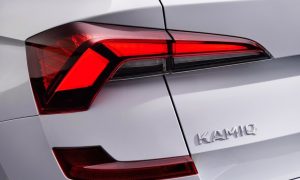
Polestar (Nasdaq: PSNY) has published its third Annual Sustainability Report, which outlines initiatives and performance on environmental, social and governance matters in 2022.
The Swedish EV-maker confirms it has reduced relative CO2 e-emissions per car sold by eight percent compared to 2021 levels, and this during a year of record global volume growth, as the company delivered nearly 51,500 cars in 2022, an increase of 80 percent since 2021. While absolute emissions have increased as a result of the scale-up, relative emissions on a per-unit-basis have reduced by 13 percent since 2020. This is the second consecutive year the company combined rapid growth with carbon cuts. This puts Polestar on track towards its goals of halving relative emissions by 2030.
The reductions come down to several factors, for example reduced average transports, high sales in markets with more renewable energy on grids, but also ongoing updates, pushed through by Polestar’s sustainability team within its car programs. One example of this is a change of supplier providing aluminium for the wheels and battery trays for Polestar 2, where a change to a hydro-powered smelter resulted in a 1.2 tonne reduction per car. Other contributing factors are the factory where Polestar 2 is built now running on 100 percent renewable electricity, as well as a diversified product portfolio with a larger share of single motor vehicles which have a lower energy demand during production.
Fredrika Klarén, Head of Sustainability at Polestar, says: “We wear our emissions on our sleeve – measuring and scrutinising every detail ensures we keep our eye on the ball. Electrification alone is not enough and pure EV-makers like Polestar have a lot of work ahead of us. Our focus remains unchanged as we double down on cutting emissions in our supply chain.”
In addition to their environmental footprint from production, EVs also come with a social footprint. Polestar uses blockchain to trace risk materials back to the mine, mitigating social and environmental risks in complex supply chains. Material traceability is now increased to include cobalt, mica, lithium, nickel as well as leather and wool.
The Polestar 0 project, the company’s goal to create a truly climate-neutral car by 2030, has now been joined by over 20 leading players from various industries, all focused on finding solutions to eliminate CO2e and re-think processes, instead of relying on misleading offsetting schemes.
During 2022 Polestar teamed up with Circle Economy and STENA Recycling to measure the company’s impact and set a circularity baseline, from which work will be done to improve raw material consumption, biodiversity and recyclability.
Polestar also received additional certification in February 2023 as it was rated a low-risk 17 by Sustainalytics.



